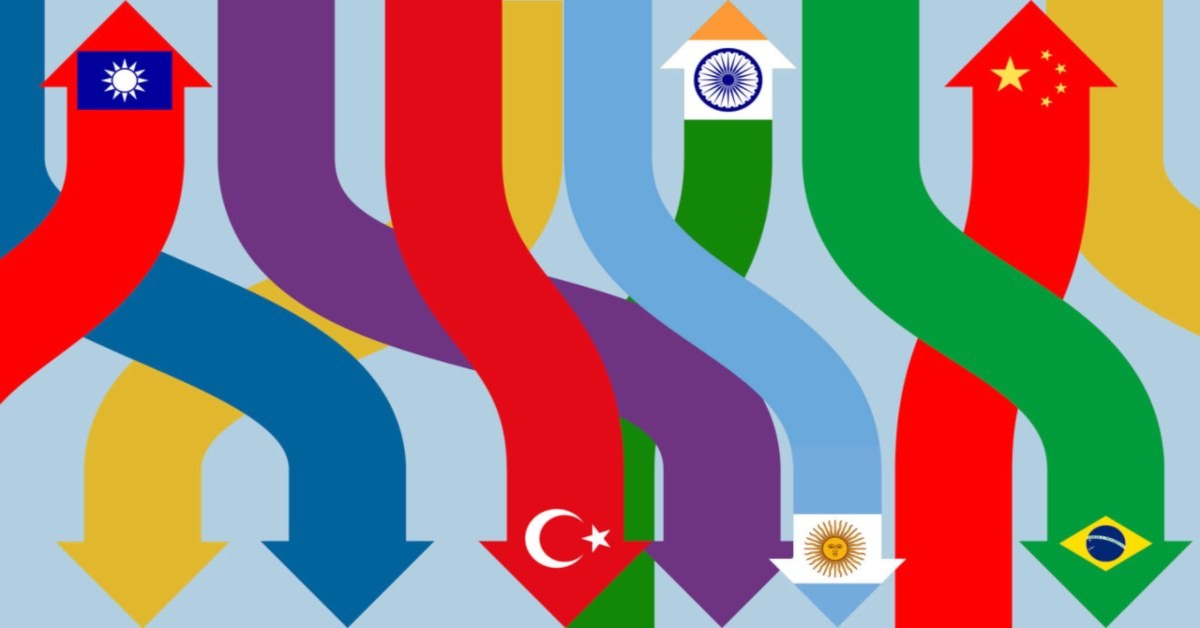Opposition demonstrations, repression, and official resignation
After the covid-19 crisis, the huge stimulus packages by governments and central banks helped the economies to recover themselves. However, recovery was not just the only result, inflation after these huge supports increased rapidly. With increasing concerns around inflation, central banks officials tried to calm the markets and promised that with faster economic recovery supply and demand will be balanced and decrease inflation, but no one knew about the Russia-Ukraine war.
Right when the global economy started to rebalance itself and inflation had some signs of calming, especially in the developed economies, the ongoing conflict in Ukraine started. We had many reports about developed economies, however, we should not forget about emerging economies as well.
Emerging economies are the economies that almost have the developed economies' structures, but do not fully meet their standards.
“BRIC countries of Brazil, Russia, India, and China. These countries are currently considered the top four emerging markets.
CIVETS countries of Colombia, Indonesia, Vietnam, Egypt, Turkey, and South Africa. These countries are predicted by some to be among the next emerging markets to quickly rise in economic prominence
Chile, Czech Republic, Hungary, Indonesia, Malaysia. Mexico, Morocco, Philippines, Poland, South Korea, Taiwan, and Thailand." (https://ggu.libguides.com/)
Increasing conflict between Ukraine and Russia and continuing of that for more than one month has caused serious damage to the world economy. Russia and Ukraine together produce almost 30% of global wheat, according to Germany's Federal Office for Economic Affairs and Export Control. So now, in line with higher energy prices, we can see the food price also increasing sharply.
According to the reports from different media, with protests rallying against high food and energy costs in Peru, the government declared a state of emergency in the capital. Earlier this week, we had some reports of dissatisfaction in Egypt as well, which caused an emergency meeting between some Arab officials to discuss political settlement between Russia, and Ukraine in Moscow. Most North African countries are dependent on Russian and Ukrainian wheat. Tunisia’s president dissolved parliament on Monday to keep control of a turbulent domestic situation. But it is not just in African countries. In Turkey, food prices increased sharply, and with higher energy prices, now inflation is more than 60% according to the latest statistic. Farther away in East Asia and Sri Lanka, the Finance Minister resigned, just a day after being appointed, when he found out that he cannot solve the problems caused by a crippling debt burden and a collapse in tourism revenues over the last two years.
If this situation continues, mentioned concerns will increase even more, and create more problems as well. However, if these tensions finish right now, still its effect continues, at least for the next coming year, mentioned countries' stock markets and currencies will be under pressure.


















